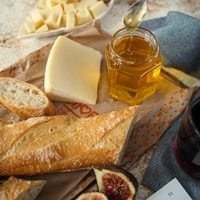(BRUSSELS) – Negotiators from the EU Parliament and Council reached provisional political agreement Tuesday to update rules on the composition, name, labelling and presentation of certain ‘breakfast’ foodstuffs.
Much of the honey imported from non-EU countries is suspected of being adulterated with sugar and undetected on the EU market. With a view to countering fraud and better informing consumers, the negotiators agreed to make it obligatory to clearly indicate, in the same field of vision as the product’s name, the countries where the honey originate instead of only if it comes from the EU or not – currently the case for honey blends. The percentages of the honey coming from at least the top four countries of origin must also be indicated. If this does not represent more than half of the total honey, the percentages need to be indicated for all countries.
Following feasibility studies, and to further limit fraud, the EU executive is to propose a unique identifier code or similar technique to be able to trace the honey back to beekeepers. An EU platform of experts will also be set up to gather data to improve controls, detect adulteration in honey and provide recommendations for an EU traceability system to allow honey to be traced back to the harvesting producer or importer.
For fruit juices, jams, and marmalades, the Commission will prepare a report assessing making labelling on the country of origin of the fruit used obligatory within 36 months of entry into force of this directive accompanied by a legislative proposal if appropriate.
For jams and marmalades, the general rule will be that at least 450 grams of fruit must be used to produce 1 kilo of jam and marmalades (500 grams for high quality “extra jam”).
Based on the Parliament’s proposal, it was also agreed that the label ‘contains only naturally occurring sugars’ should be allowed for fruit juices. In addition, to meet the growing demand for low-sugar products, it was agreed that reformulated fruit juices may be labelled ‘reduced-sugar fruit juice’ if at least 30% of naturally occurring sugars have been removed. However, producers will not be allowed to use sweeteners to compensate for the effect of sugar reduction on the taste, texture and quality of the final product.


